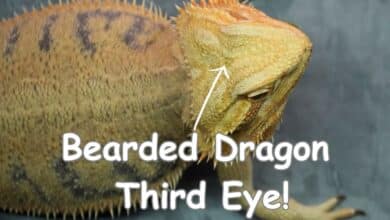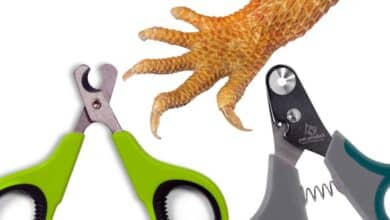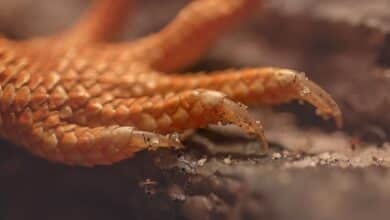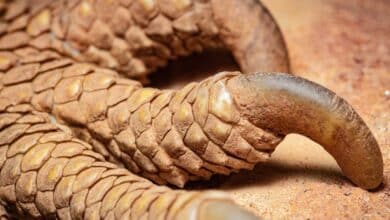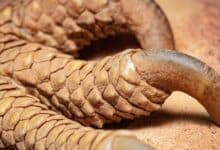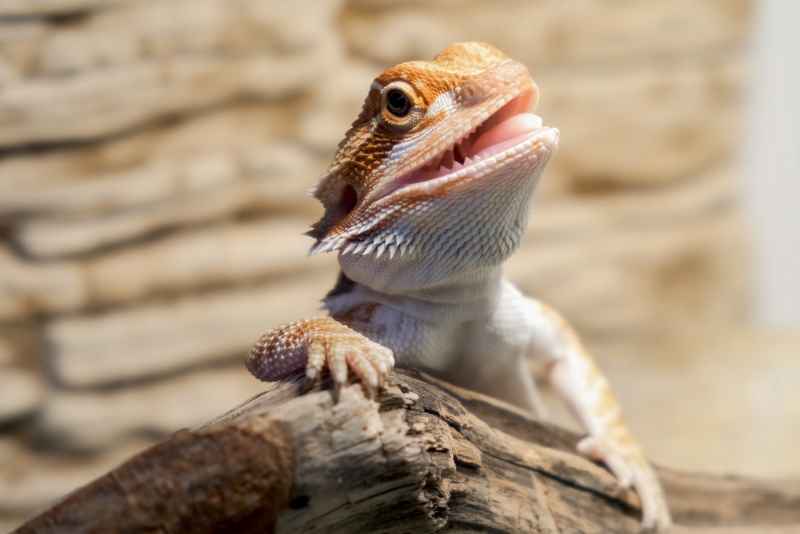Bearded Dragon Bleeding: Areas Where, When, and Why

If you have a pet bearded dragon, you may be concerned if you notice it is bleeding. While some bleeding is normal, excessive blood loss can be a sign of a serious health problem. There are several areas where your bearded dragon could be bleeding and different reasons why.
- Nose
- Mouth-gums
- Tail
- Anus
- Ear
- After mating
- Claws
If you notice your bearded dragon acting lethargic or refusing to eat, it’s best to take them to the vet for a check-up. The vet will be able to assess the situation and provide treatment if necessary. In most cases, a bearded dragon will recover quickly with proper care.
Contents
Bearded Dragon Bleeding From Nose
A bearded dragon that is bleeding from its nose can have many different reasons. It could be anything from an infection to cancer, to just a simple nosebleed. If your bearded dragon is bleeding from its nose, the first thing you should do is take it to the vet. They will be able to give you a more specific answer as to why your bearded dragon is bleeding.
Some of the more common causes of a bloody nose in bearded dragons are an infection, a foreign body, or trauma. Infections can be caused by bacteria, viruses, or fungi and are the most common cause of a bloody nose in bearded dragons.
Foreign bodies can include pieces of sand or dirt that become lodged in the nostrils and cause irritation and eventually bleeding. Trauma can occur if your bearded dragon bangs its head or nose on something hard.
This can cause bruising and eventually bleeding. If your bearded dragon has a bloody nose, it is important to take it to the vet so they can determine the cause and provide treatment if necessary.
Bearded Dragon Bleeding From Mouth-gums
A bearded dragon may bleed from its mouth and gums for a variety of reasons. In some cases, it may be due to an injury or infection. If the bleeding is accompanied by swelling, redness, and discharge, it is likely due to an infection and should be treated by a veterinarian.
In other cases, the bleeding may be due to a condition known as stomatitis, which is an inflammation of the lining of the mouth. Stomatitis can be caused by a number of things, including bacteria, viruses, fungi, or even allergies. Treatment for stomatitis will vary depending on the underlying cause.
In some cases, antibiotics or antifungal medications may be prescribed. In other cases, changes in diet or environment may be necessary. If your bearded dragon is bleeding from its mouth or gums, it is important to seek veterinary care to determine the cause and appropriate treatment.
Bearded Dragon Bleeding From Tail
A bearded dragon may bleed from its tail for a number of reasons. If the bleeding is accompanied by any other symptoms, such as lethargy, loss of appetite, or pain, it may be indicative of a more serious health problem and should be evaluated by a veterinarian.
One common cause of tail bleeding is tail necrosis, which occurs when the blood supply to the tail is cut off. This can happen if the tail is injured or if the dragon is suffering from an underlying health condition that impacts circulation.
Tail necrosis typically leads to the death of the tissue and eventually falls off. In some cases, however, surgery may be able to save the tail. Another possible cause of bleeding is a parasite infection. While parasites are typically more harmful to young dragons, an adult dragon with a weak immune system may also be susceptible.
Parasites can cause anemia and organ damage, and if left untreated, can be fatal. If you notice your dragon bleeding from its tail, it is important to seek medical attention as soon as possible to determine the cause and start treatment.
Bearded Dragon Bleeding From Anus
A bearded dragon bleeding from its anus is a cause for concern and warrants a trip to the vet. There are several potential causes of this symptom, including impaction, parasites, and infection.
Impaction is a common problem in bearded dragons and can occur when the animal ingests something it cannot digest, such as sand or gravel. The ingested material can then become lodged in the intestines, causing inflammation and irritation. In some cases, the impacted material can even rupture the intestines, leading to bleeding.
Parasites are another potential cause of bleeding from the anus in bearded dragons. These tiny creatures can invade the intestines, causing irritation and inflammation. In severe cases, they can even cause the intestines to rupture, leading to bleeding.
Infection is another possible cause of this symptom. Infection of the digestive tract can occur due to bacteria, viruses, or fungi. These infections can cause inflammation and irritation of the intestines, leading to bleeding.
If your bearded dragon is bleeding from its anus, it is important to seek veterinary care as soon as possible. An accurate diagnosis is essential for proper treatment and prevention of future problems.
Bearded Dragon Bleeding From Ears
There are a few potential reasons why your bearded dragon may be bleeding from its ear. One possibility is that it has been injured, either by another animal or by something in its enclosure.
Another possibility is that it has an infection, either in the ear itself or elsewhere in the body. If the bleeding is accompanied by other symptoms, such as lethargy or loss of appetite, it is likely that the cause is an infection.
Bearded dragons are also susceptible to mites, which can cause severe irritation and lead to bleeding. If you suspect that your bearded dragon has mites, you should take it to a veterinarian for treatment.
Finally, some bearded dragons develop tumors, which can bleed if they are located near the ear. If you notice any abnormal growths on your bearded dragon, you should have it examined by a veterinarian as soon as possible.
Bearded Dragon Bleeding From After Mating
A bearded dragon may bleed after mating for several reasons. First, the male’s beard spikes can injure the female during the mating process. Secondly, the male may bite the female’s tail in order to get her to cooperate. Finally, the sexual organs of both genders are very sharp, and they can easily cut each other during mating.
All of these injuries can cause bleeding. In addition, the female may lay eggs a few days after mating, and this can also cause some bleeding. If you notice that your bearded dragon is bleeding after mating, it is important to take them to a vet as soon as possible.
The vet will be able to determine if the bleeding is due to an injury or if it is something more serious. They will also be able to provide treatment for any injuries that your dragon may have sustained.
Bearded Dragon Bleeding From Claws
There are several possible reasons why this may occur. In some cases, it may be due to an injury. If the dragon has been scratching at its enclosure or climbing on rough surfaces, the claws can become damaged and start to bleed. Another possibility is that the dragon is suffering from a skin infection.
If the skin around the claws is red or inflamed, it may be a sign of an underlying infection. In some cases, bleeding from the claws can also be a sign of kidney disease or liver disease.
If your bearded dragon is bleeding from its claws, it is important to take it to the vet for a check-up. Only a professional will be able to determine the cause of the problem and provide appropriate treatment.
Conclusion
Bearded dragons are prone to a variety of health problems, many of which can be easily treated at home. However, bleeding from your bearded dragon may not be as simple to diagnose and treat. If you notice that your bearded dragon is bleeding, it is important to take them to a vet as soon as possible.
While some bleeding may not be serious, it could be a sign of a more serious health problem down the line. A vet will be able to determine the cause of the bleeding and provide the appropriate treatment. In some cases, treatment may only require a simple course of antibiotics. However, more serious problems may require surgery or other intensive treatment.
By taking your bearded dragon to the vet at the first sign of bleeding, you can ensure that they receive the care they need and avoid any potential complications.
